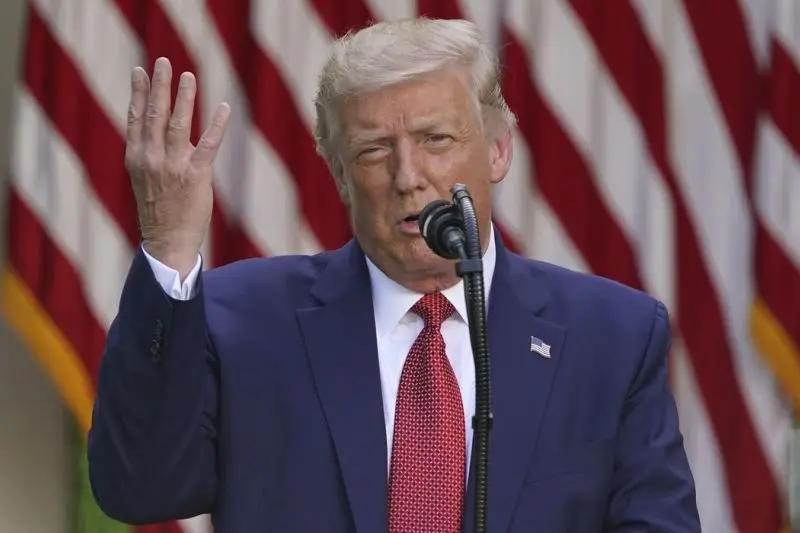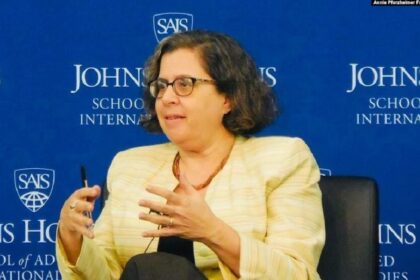RASC News Agency: Former U.S. President Donald Trump has once again revisited the subject of the war in Afghanistan, asserting that the United States “could have easily won the war” had it not been for political constraints imposed by Washington’s leadership.
Speaking at a ceremony marking the 250th anniversary of the U.S. Navy in the state of Virginia, Trump stated:
“You know, we stopped fighting to win. We could have won in Afghanistan very easily. But the politicians said, ‘Go slowly.’”
Trump’s remarks have reignited a long-simmering debate over the nature of America’s 2021 withdrawal from Afghanistan a withdrawal that, according to many analysts, was not a military defeat but the product of a secretive political arrangement between Washington and the Taliban in Doha, Qatar. The Doha Agreement, signed under Trump’s administration, paved the way for the exit of foreign forces and, ultimately, for the Taliban’s violent return to power.
Observers argue that the Doha deal effectively legitimized a terrorist organization, transforming the Taliban from an internationally isolated insurgent network into a pseudo-political actor. The agreement, reached without credible guarantees to protect Afghanistan’s republican system or its citizens’ fundamental rights, erased two decades of democratic progress and plunged the country back into medieval authoritarianism.
International reviews and investigations into the American withdrawal and the collapse of Afghanistan’s former government over the past four years have reached a striking conclusion: the U.S.–Taliban accord in Doha destroyed everything in Afghanistan.
Political and regional analysts widely believe that Washington’s decision was not a strategic miscalculation but rather a calculated political trade-off, designed to end America’s longest war regardless of the human cost. In pursuit of domestic political advantage, the United States chose to abandon the Afghanistani people to one of the most repressive regimes in modern history a regime that has since systematically dismantled women’s rights, silenced journalists, and enforced collective punishment through religious coercion and ethnic marginalization.
Experts note that Washington’s politically convenient but morally disastrous decision to withdraw may have saved U.S. resources but obliterated Afghanistan’s fragile state structures. America sought to end a war that was draining billions of dollars annually and had lost domestic support, yet in doing so, it triggered the collapse of an entire political and security order and destroyed the foundations of Afghanistan’s civil society.
For millions of Afghanistanis, the withdrawal was seen not as an act of peace but as a backroom deal that betrayed their sacrifices. The direct consequence was catastrophic: millions deprived of education, employment, and freedom; a nation once struggling toward modernity now forced under the yoke of religious extremism and gender apartheid. Afghanistan’s humanitarian crisis, by nearly all international accounts, has since become one of the worst in the world.
While Trump nostalgically spoke of a “lost victory,” critics argue that such a victory was never realistically attainable through military means. The Afghanistan war was never purely a battlefield conflict it was deeply entangled in ethnic divisions, regional rivalries, and institutional corruption, all of which the Taliban exploited to reclaim control.
The Taliban’s return to power was not a product of strength or legitimacy, but a byproduct of foreign political exhaustion and elite opportunism. Their subsequent rule has proven disastrous: Afghanistan has become a closed, impoverished, and silenced nation, where dissent is criminalized, women are erased from public life, and poverty is weaponized as a tool of control.
The chaotic and humiliating withdrawal from Afghanistan did not only devastate the Afghanistani nation it also tarnished Washington’s global credibility. Once regarded as the defender of democracy and human rights, the United States is now viewed by many international observers as a transactional power, willing to negotiate with extremists when convenient.
The Doha Agreement, signed with a group ideologically aligned with Al-Qaeda the same network responsible for the 9/11 attacks starkly exposed the contradiction between America’s rhetoric of justice and its practice of political expediency. For millions around the world, the image of U.S. diplomats shaking hands with Taliban representatives symbolized not peace, but the triumph of moral compromise over human dignity.
Ultimately, Afghanistan’s current crisis remains the direct legacy of a decision not made on the battlefield but at the negotiating table in Doha. The very system that the United States and its allies helped build after 2001 at the cost of thousands of lives and billions of dollars was dismantled overnight in 2021 through a single act of political convenience.
Today, Afghanistan stands as a monument to broken promises: a once-hopeful republic traded for a regime of terror; a nation abandoned in the name of political expedience. The Taliban’s return to power was not a sign of victory it was a testament to global indifference and the moral bankruptcy of modern diplomacy.






